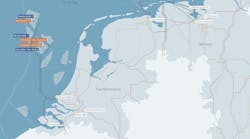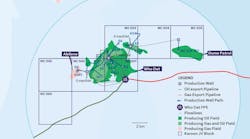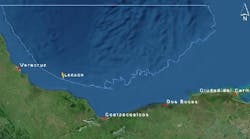Offshore staff
WASHINGTON, D.C. – According to new economic studies, opening the US outer continental shelf (OCS) to offshore oil and natural gas development would be an economic catalyst.
API commissioned Calash and Northern Economics to analyze the economic impact of oil and natural gas development in the OCS by region. The studies found that the US could see economic gains including:
Atlantic OCS
• Projected $260 billion total cumulative spending over the 20-year period
• $22 billion spent per year by the oil and natural gas industry 20 years after initial lease sales
• Nearly 265,000 jobs supported across the nation within 20 years.
Pacific OCS
• Projected $160 billion total cumulative spending over the 20-year period
• $25 billion spent per year by the oil and natural gas industry 20 years after initial lease sales
• More than 300,000 jobs supported across the nation within 20 years.
Eastern Gulf OCS
• Projected $118 billion total cumulative spending over the 20-year period
• $14 billion spent per year by the oil and natural gas industry 20 years after initial lease sales
• Nearly 165,000 jobs supported across the nation within 20 years.
Alaska OCS
• Projected $53.4 billion total cumulative spending over the 20-year period
• An estimated nearly $2 billion spent on average per year by the oil and natural gas industry
• Support up to about 13,500 jobs per year across the nation over the 20-year period.
API Director of Upstream and Industry Operations Erik Milito said: “The oil and natural gas industry is a major contributor to the American economy and helps meet America’s constantly increasing energy needs. We support more than 10.3 million US jobs and contribute $1.3 trillion to the US economy - benefits that are felt across the country.”
“With more than 94% of the total acreage in federal offshore waters currently inaccessible, opening the outer continental shelf to safe and responsible offshore energy development could further advance our energy renaissance – including more higher-paying jobs, investments in local communities, additional state revenue for public education and infrastructure, and long-term energy self-sufficiency,” said Milito.
03/09/2018




